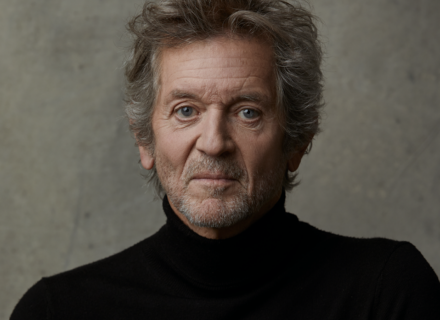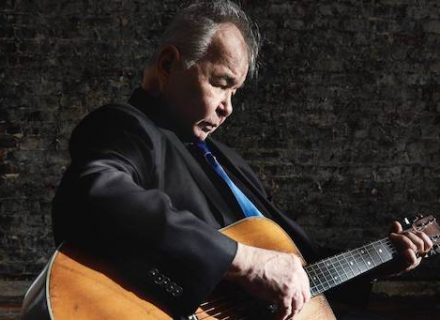East Texas singer-songwriter Vincent Neil Emerson recently released a new LP produced by Americana luminary Rodney Crowell.
We recently had the pleasure of chatting with Vincent Neil Emerson, a critically acclaimed East Texas singer whose hard-luck folk tunes show wisdom and perspective not typical of his twenty-something age. Emerson has just released his sophomore, self-titled album, the follow-up to the 2019 debut album Fried Chicken & Evil Women.
The new record finds Emerson’s raw, unadorned vocal stylings balanced with eclectic, gorgeous arrangements, thanks partly to production by legendary Americana singer-songwriter Rodney Crowell. But the lyrics and themes still stand above all — the musical life lessons of a self-proclaimed country boy with Choctaw-Apache roots.
Read on for a thoughtful conversation with Vincent Neil Emerson, interlaced with some of his new and older tunes. If you didn’t know him before, you’ll be glad you do now.
Cowboys & Indians: What's been going on today?
Vincent Neil Emerson: Oh, I’ve just been doing a little light to moderate ranching. … I’m helping with a buddy’s place [Tate Farms in Rockwall, Texas], and I’ve been working out here for like a month, when I’m not out on the road doing shows.
C&I: Well, you just changed the whole direction of our interview. How does a little ranch work inspire you musically, if at all?
Emerson: Well, lately for me, it’s just been a learning experience, first of all. But second of all, I’ve been able to get my body back in shape, my mind back in shape, which is something that ... it’s hard to do, touring.
C&I: It’s a different way to use your brain, not to mention the exercise. But you just released your second album earlier this month. How has that been for you?
Emerson: It’s been hectic, but it’s been really good. I’ve been doing a lot of interviews and this other work that comes along with getting a record put out.
C&I: This record is a little bit different from your last one, a nice evolution. I would call the last one a rip-roaring set. And this one definitely has a different, more reflective vibe. Tell me a little bit about where you were when you wrote some of these songs. What kind of space were you in?
Emerson: Well, it changes song to song. But for these songs, I was stuck at home during quarantine and was in my shed in my backyard, just thinking about everything. Everything fell apart all at once, and I was left with a lot of free time on my hands and trying to slow down and really think about everything.
C&I: What kind of shed are we talking about?
Emerson: Like a workshop, a work shed, where I keep the lawnmower and tools and stuff. I had a couch out there, a couch and a table and a guitar.
C&I: And did you start out with poetry, or lyrics, or play around first and let songs come in the moment?
Emerson: I’ve done it every which way you could, I suppose. But a lot of these songs were written in a stream-of-consciousness kind of way, where I just sat down. And I wasn’t too concerned with coming up with a story or some idea that I had beforehand. I let a lot of it come out. On a couple of songs, I was trying to write about nothing, and I ended up writing about some really serious stuff.
C&I: Any particular track you can cite as an example of that unexpected profundity?
Emerson: I think “High on Getting By” — I wasn’t sure what I was writing about. I got one verse in, and I was like, OK, this is where I am.
C&I: What about “The Ballad of the Choctaw-Apache”? Surely you started that song with an idea of what it would be …
Emerson: Yeah, that was definitely one of the songs that I set out to write. It came naturally, but I did: I went into it with purpose and intent. And that was to shed some light on a piece of history attached to my tribe and my family. And I think those things need to be known in a song.
C&I: Had that been something you had heard talked about by family, or something you discovered the history of more on your own?
Emerson: My mother’s side of the family, they moved to East Texas whenever my mother was a child. And so, they were East Texas kids. A lot of people in that area have been relocated or moved or had their culture wiped out and lost connection with their heritage. And I feel like my family was one of those. So as an adult, I’ve had a chance to research and reconnect and go back to where my grandmother is from and visit with the people and learn. So yeah, it’s definitely been something that I’ve come to as an adult, and I have a new appreciation for.
C&I: Did this song and the reception to it shift your outlook on writing at all?
Emerson: Well, I don’t know if I’ll write another song like that again. But yeah, it’s taught me a lot. The reception that I received from the song and playing it live, for people of indigenous ancestry, I think it’s good to have those things on the front of your brain. You know?
C&I: Yeah, snd it’s amazing sometimes where the lessons come in, through a song, when history classes in school haven’t always been thorough. It’s also moving to hear all of the more intimately personal songs on your album. You mentioned East Texas, growing up there. What was it like for you as a kid?
Emerson: Well, it’s definitely changed a lot since I was a kid, but it was just a regular small Texas town. And I grew up on a little piece of land that my papa owned in Myrtle Springs. I was raised around all my aunts and uncles. They all lived on the same piece of property, and it was a classic, small town, country-boy upbringing.
C&I: I know that upbringing. Just running wild, outside all the time.
Emerson: Always barefoot, no shirt on most of the time. Yeah, catching fleas and ticks and everything.
C&I: When did you know as a kid that you were drawn to music or drawn to expressing your feelings in some other way than just talking?
Emerson: Well, I think children can feel music a little more than adults can. I mean, just look at a kid dance. For me, it was my Papa who had these old Elvis Presley and Johnny Cash cassettes, and he put those in. And that was my first introduction to music — listening to Elvis and watching those old Elvis movies and stuff. I loved Elvis when I was a kid, and my dad would play me Elvis tapes as well. I didn’t pay too much attention to music whenever I was a teenager. And then I was about 18, 19 years old, I started learning how to play the guitar and writing songs. And I really got into it then.
C&I: And then not too soon after, you moved to Fort Worth. You had a baseline of Elvis, Johnny Cash, the classics, and then you come to Fort Worth and it’s this whole world of country-western/Americana. What was that like for you and what were some of the things you were drawn to right away?
Emerson: Well, I think when I discovered Townes Van Zandt, that changed the game for me. I didn’t know that songs like that existed. I had no idea about people like Townes and Guy Clark, John Prine, and Steve Earle … And the whole thing hit me like a ton of bricks. I really got into songwriting after that. And I think I found where I wanted to be — the style and direction that I wanted to go. And somehow I got caught up in the honky-tonk scene. I was playing a lot of honky-tonk music, a lot of covers, and I was writing honky-tonk songs. [The first album] Fried Chicken and Evil Women — those were all songs that I wrote when I was 22, 23. Some of it was because I really love the genre and the style, but a lot of it was out of necessity, because I couldn’t go play a gig in front of a bunch of drunk cowboys at some honky-tonk and get away with playing songs like “Learning to Drown” or something. You know?
C&I: Right. You can’t sit down and bare your soul and start out with a little jazz intro and all that. But it took that to get to this, and now you have a greater range of songs to work with. On the new album you got to work with Rodney Crowell, which I would imagine was a little crazy and surreal. Did you get over that real fast? He seems like a solid, down to earth fella.
Emerson: Yeah. Whenever we were talking on the phone about production and just talking about the game plan and what we’re going to do, he was just super. Just one of the coolest people I’ve ever met. And I think it’s a trip that I even know Rodney, but he’s a really good guy. And he’s holding the door open for me in a lot of ways and teaching me a lot.
C&I: And these are all your lyrics, but what stamp do you think he put on this recording in general? What vibes do you think he gave it that might not have otherwise been there?
Emerson: Well, I think Rodney is one of the last great Texas folk singers. He was right there with Steve Earle and Guy Clark and Townes. He was right along with all those people. And most of those folks are gone now. And I think he’s one of the last ones still around, really doing it and making really great songs. As soon as he heard the songs for this record, he heard the demos, I think he knew. He identified with them immediately, and he knew what to do with them, as far as production goes. He didn’t stand in the way too much, as far as the songwriting. He let me take that, and I wrote all the songs on the record. But I don’t think it would have sounded the way it does, if it wasn’t for Rodney — that’s for damn sure.
Learn more about Vincent Neil Emerson and his sophomore, self-titled album at the artist’s website.
Photo by Melissa Payne/courtesy the artist.















